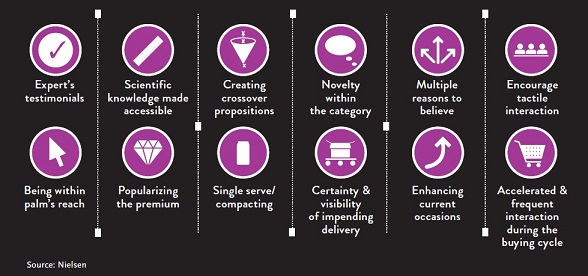
 Improving Innovation Efficiency During Economic Uncertainty
Improving Innovation Efficiency During Economic Uncertainty
Innovation remains one of the key ingredients for brand growth. Consumers are eager and willing to purchase new products. In fact, the recent Nielsen Global New Product Innovation Survey found almost two-thirds (63%) say they like it when manufacturers introduce new products, and more than half (57%) say they purchased a new product during their last shopping trip. But innovation often depends heavily on the general economy. An economic slump can drive down consumers’ confidence and as a result, manufacturers will often pull back on their innovation efforts during downturns.
In India, a new government took control in May 2014, and while several macro-economic indicators have started to show signs of revival, the overall economy is yet to see a significant improvement. To determine how such an environment has affected innovation in the country, Nielsen reached out to over 70 organizations in 2013 and 2014 to understand the innovation landscape in these companies. The results were not surprising.
With the economic uncertainty during these two years, most industries chose to focus on their core businesses rather than investing in newer propositions that would require patience to nurture and build. As a result, India’s innovation and new launch pipeline appears to have contracted compared to previous years.
While companies shifted focus to product replication and upgrades to reduce the risk of failure, such a stance will not be viable in the long run. A solid investment in research and development (R&D) spend is critical for sustainable growth and building your consumer base.
But how can brands innovate efficiently in times of economic slowdown? The study uncovered several trends that limited innovation success, as well as potential opportunities for new product growth.
THE INNOVATOR’S CHECKLIST
Interestingly, despite the purse strings being tightened, increased competition and ever-changing consumer behaviour, there are organizations and brands that have gained success by focusing on the right aspects to formulate breakthrough innovations.
Our innovation experts analysed about 50 innovations across multiple sectors including automobiles, e-commerce, FMCG, durables and services, and identified 12 key characteristics that marketers could use as catalysts to conceive, create and deliver successful innovations that resonate with the Indian consumer.

Through a deeper analysis, we were able to cull out four key characteristics that were common to all the innovations analysed and relevant to success in the marketplace.
